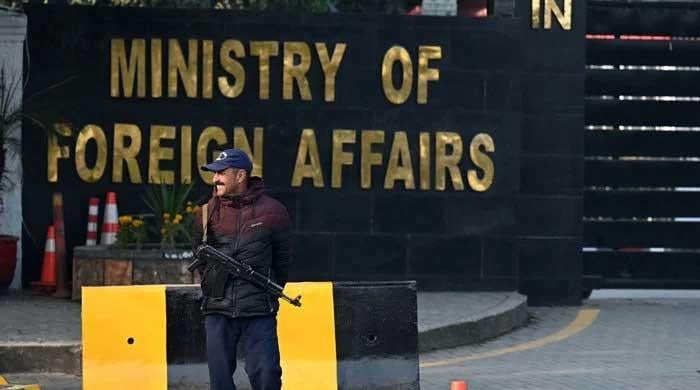Islamabad Voices Strong Concerns to Kabul Over Joint India-Afghanistan Statement
Islamabad communicated its profound concerns to Kabul on Saturday regarding elements of the India-Afghanistan joint declaration released in New Delhi. Pakistan rejected the references to Jammu and Kashmir and the assertion that terrorism constitutes an internal issue for Pakistan.
“The joint statement demonstrates a high level of insensitivity towards the sacrifices and sentiments of the people residing in Indian Illegally Occupied Jammu and Kashmir (IIOJK), who are persistently engaged in their rightful struggle for self-determination,” stated the Foreign Office in its released statement.
The Additional Foreign Secretary (West Asia & Afghanistan) also summoned Afghanistan’s ambassador to lodge Pakistan’s formal protest. The envoy was informed that mentioning Jammu and Kashmir as part of India represents a “clear breach” of the relevant United Nations Security Council (UNSC) resolutions and challenges the disputed region’s legal standing, as per the FO statement.
The joint declaration was issued during Afghan Foreign Minister Amir Khan Muttaqi’s six-day visit to India, which was made possible after he received a temporary exemption from his travel ban by the UN Security Council (UNSC) Committee. This marks the first visit of an Afghan leader since 2021.
A day prior, India enhanced its relations with the ruling administration, offering a boost to the diplomatically isolated group by announcing the reopening of its embassy in Kabul, which had been closed following the takeover in 2021.
In the joint statement, both parties firmly denounced “all acts of terrorism originating from regional countries,” emphasizing the necessity of fostering peace, stability, and mutual confidence within the region.
The FO’s statement today emphasized Pakistan’s strong rejection of FM Muttaqi’s claim that terrorism is an internal matter for Pakistan.
Islamabad restated that it has provided Kabul with credible evidence concerning the presence of elements operating from within Afghanistan against Pakistan, with support from inside Afghanistan.
“Shifting the responsibility for controlling terrorism onto Pakistan does not relieve the Interim Afghan Government of its responsibilities to ensure both regional and broader peace and stability,” the statement clarified.
Pakistan reaffirmed its enduring support for Afghanistan, noting that it has accommodated approximately four million Afghans over four decades and continues to issue medical and study visas on humanitarian grounds.
It was emphasized that as peace gradually returns to Afghanistan, Afghan nationals residing in Pakistan without authorization should return to their homeland.
The statement also mentioned Pakistan’s dedication to fostering a peaceful, stable, and economically interconnected Afghanistan through trade, connectivity, and regional collaboration. However, Islamabad underscored that safeguarding national security and preventing terrorist infiltration remains its foremost priority.
“Pakistan anticipates that the interim Afghan government will fulfill its responsibilities by taking definitive actions to prevent its territory from being exploited against Pakistan,” it concluded.
Tensions between Islamabad and Kabul are escalating due to the interim government’s perceived reluctance to act against terrorist groups operating from within Afghanistan, amidst increasing terrorist activities in Pakistan.
Since the return of Taliban rulers in 2021, the country has experienced a rise in cross-border terrorist incidents, particularly in the bordering provinces.
The two countries share a porous border of approximately 2,500 kilometers with several crossing points which hold significance as a key element of regional trade and relations between the people across both sides of the fence.
Nevertheless, the issue of terrorism remains a central concern for Pakistan, which has appealed to Afghanistan to prevent its territory from being used by groups to launch attacks within Pakistan.
Islamabad’s concerns have been corroborated by a report submitted to the United Nations Security Council (UNSC) by the Analytical Support and Sanctions Monitoring Team, revealing a connection between Kabul and the TTP, with the former providing logistical, operational, and financial assistance to the latter.



Comments (0)
No comments yet. Be the first to comment!
Leave a Comment